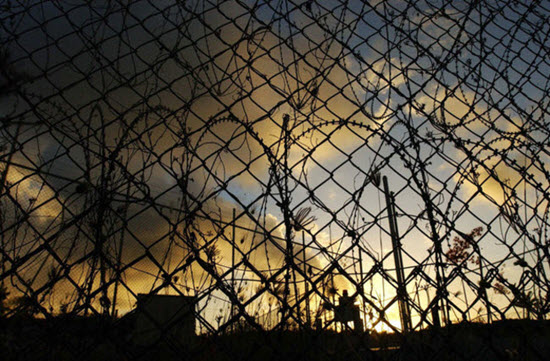New law to monitor deported Kiwis

17 November 2015
A new law introducing a monitoring regime for New Zealanders deported from Australia is likely to be passed under urgency by Parliament.
Dozens of New Zealanders have been detained under tough new visa laws across the Tasman, and are to be deported back to this country.
The law is expected to be passed by this evening, or tomorrow at the latest, as the government wants the law in place before the largest single group of deported detainees arrives back at the end of the week.
The legislation introduces parole-like conditions for anyone deported from Australia, or any other country, with criminal convictions.
The large group from Australia, some who have serious criminal histories, are coming back to New Zealand to pursue their appeals against deportation.
The government has said the law will not be retrospective, so it has few options to monitor returning detainees unless it was in place when they arrive.
Speaking from Vietnam, Prime Minister John Key said the government had a responsibility to monitor these people, who are potentially quite dangerous.
Labour leader Andrew Little said his party would support the bill, but wanted a sunset clause included so the new legislation expired in a few months, allowing time for permanent legislation to be drafted and go through the select committee process.
The Green Party said it would abstain from voting on the legislation. The party's co-leader Metiria Turei said while they accepted the need for the provisions in the bill, they disagreed with the process.
“We do understand that it needs to be dealt with quickly, but for example, we asked [Justice Minister] Amy Adams' office for a discussion about this in July and were rejected, we've asked for analyses and time for there to be a select committee, and that has been declined. We don't think the process is right.”
Lack of monitoring regime defended
Meanwhile, Ms Adams has been defending the fact there has been no monitoring regime in place for hundreds of murderers and rapists deported back to New Zealand over past years.
The government did have the option of extended supervision orders or public protection orders for the most serious offenders since a law change last year.
However, neither type of order had been sought for convicted criminals returning from other jurisdictions.
Ms Adams said those convicted of serious crimes in other countries had always been subject to deportation, but under the new Australian policy the numbers had increased.
She said it was up to the chief executive of the Department of Corrections to monitor those who returned and to seek the special orders.
“The chief executive of Corrections has to assess in each case whether there is anyone arriving who is a serious enough threat to New Zealand to warrant that.
“Now he has clearly decided that there aren't - you can read that whatever way you like.
“Either the people coming back he regards as being low or for some other reason hasn't sought it.
“Why they haven't been sought for any of the people who have returned is a matter that only he can address.”
Threshold high for special orders
National Commissioner for Corrections Jeremy Lightfoot said the threshold for an extended supervision order (ESO) to be granted was very high and even higher for public protection orders (PPO).
He said these orders were designed to protect the public from the most dangerous and high-risk offenders, who had finished their prison sentences and had to be released.
“A low percentage of offenders meets this threshold. Corrections has a range of other options to manage offenders that do not meet this threshold.
“All offenders deported to New Zealand have been assessed to determine if they have qualifying offences.
“For those who had qualifying offences, all the available information from the country they had been deported from was assessed to see if Corrections could determine if their level of risk would make them eligible for an application for an ESO or PPO. None of them reached that threshold of risk.”
He said Corrections continued to work with authorities to access information in order to assess newly deported citizens who had qualifying offences, to determine whether they meet the threshold for an ESO or PPO.
“If they do, Corrections will make an application to the court for a judge to decide whether to impose an order.”
Since the introduction of the new ESO and PPO legislation in December last year, 15 new ESOs have been granted by the courts for offenders who have been subject to a sentence in New Zealand.
No PPOs have yet been applied for to the courts.
Listen to the story.
Read the Radio NZ article.